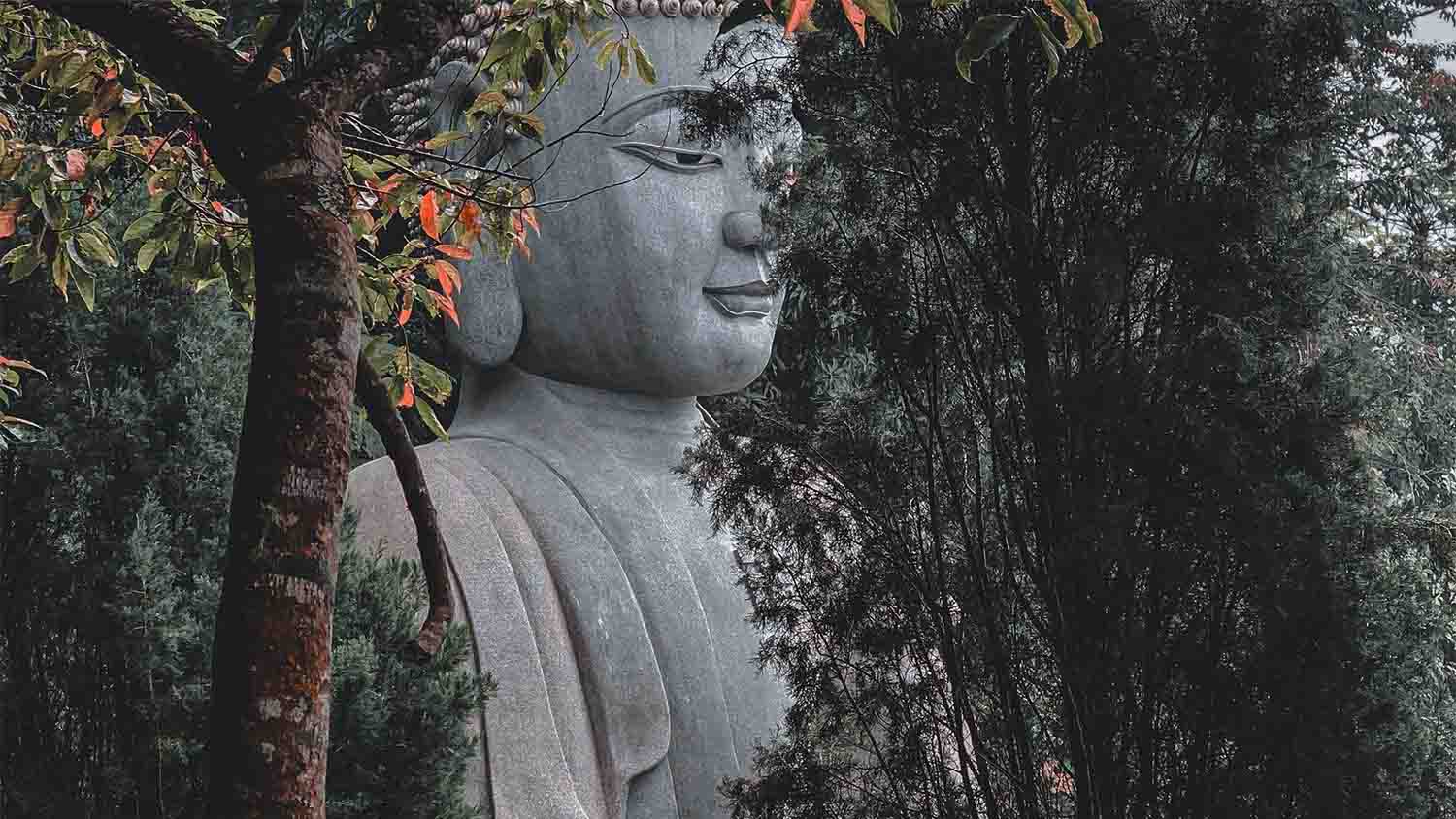Few people will disagree that life improves with money and love. The more one has of both, the better life is.
Of course, it can happen that the pursuit of one repels the attainment of the other, and such a dilemma brings complications to one’s life. For example, the pursuit of money can leave a family scarce time for hiking or looking up at clouds together, with the sky’s leisure filling their limbs.
Oddly—love appears more vividly with suffering. A life that’s too easy, without moral education can make one less empathetic. (This is why religious people invite suffering—in order to increase their love.)
We know the depth and value of someone’s love only after it’s been tested: when they have missed work to show up for their friend in the hospital, or postponed travel plans, or arranged their life to help.
I’ve heard of friend-groups in Japan: four or five people who vow to take care of each other in life so that if one of the friends loses their job they’re welcome to stay with one of the others—sometimes for years—until new work comes along.
Perhaps nations could lower their welfare budgets by managing their culture and economy to support strong and noble friendships. This is a complicated subject, fraught with many equally valid but opposing views.
Emphasis on personal liberty (what the philosopher Isaiah Berlin calls negative liberty) in Western nations almost precludes the kind of thinking and attitude that makes deep friendships (an expression of positive liberty) possible.
For many cultures, true friendship is backed by the promise of money! This kind of relationship makes for a different sense of meaning and fulfillment in one’s life—a life of fulfillment almost unimaginable in contemporary society. (Money, of course, might be time or attention. We do not simply mean here dirty green bits of paper or flashing electronic digits).
For a remarkable—nervy—piece on the relationship between spiritual strength and suffering, and the ill-effects of too much ease and comfort in life, consider Alexander Solzhenitsyn’s commencement address to the 1975 graduating class of Harvard University.
Looking More Deeply at Money and Love
Money and love are not unrelated. One might say it’s rude to ask for money. But that is usually from the standpoint of hypocrites like the brother of a Buddhist nun I knew who said to the nun’s husband (a priest—indeed we live in topsy-turvy times!) that he, the brother, would help the nun’s husband, the priest, in any way so long as it didn’t involve money.
The priest laughed because he rightly surmised that there is very little meaningful help that doesn’t require money: food, shelter, clothing, water, fuel, freedom, and transportation. Of course, we understand the brother’s position, too: “that I respect and support your spiritual work—the work of universal love—but not the work of your physical marriage, which each person must tend to with their own, particular power and ability.” Reflecting on this example, however, I have to admit that I question the depth of this brother’s love for his sister. To be clear, too—the nun did not ask for money or help. The subject was raised by the brother!
Those of us who have grown up in Western-minded states whose great success largely depends on science and the Cartesian dualism that separates mind and body can conveniently divide a spiritual substance (love) from a material substance (money).
When we talk about money, somehow, it’s easy for us to draw strict lines around its form—and allocations. Most of our so-called ‘loving’ relations—with our family, friends, or partners—are, therefore, and not wrongly so, economic and emotional ones. Joining together emotional and economic benefits with a companion is, of course, convenient. But this shouldn’t mean that convenience equals love.
Intuitively Love Knows Togetherness
Love isn’t merely a matter of agreement. To have an agreement with someone is not to love them. We run up a hill together and feel the wind through our hair. We plunge into the seaside and hug! These matters aren’t discussed, or if they are, truly it’s at the expense of love. Love—at least from a spiritual perspective—does not negotiate. Rather, love intuitively knows togetherness, and functions effortlessly as such—or at least with the strong intention and will for togetherness.
Of course, money can make it easier to realize and express our love. But it isn’t necessary, and it’s not guaranteed to do so. What we love about love, and what makes love so powerful, is its ability to overcome the limits that the world of form—the world of time and money—imposes on us.
Love is powerful and meaningful when, regardless of the absurdity of our promise, we vow to fulfill it however difficult or impossible the fulfillment of our pledge may seem. A soldier, for example, vows to win a war for his nation and goes to battle believing he will win. Interestingly, his vow is almost more meaningful to his country than the battle’s outcome. Of course, the vow is only 100% heroic when it’s fulfilled.
To make vows that one can’t fulfill turns one into a chump. Without fulfilling our vows, we dirty love’s meaning—its claim. Indeed, what’s the meaning of a marriage vow that’s broken after several days? To love, therefore, is difficult and demanding work that ought to be backed by physical evidence.
Love ought to be backed by money, but it doesn’t depend on money.
But love doesn’t depend on money. This is the charm of the poor family that lives in a cottage and hears the rain outside—and inside—dripping into their ceramic pots as it leaks through the aging roof. Despite their poverty, the family is peaceful and comfortable because they study and discuss sutras together. They hear the rain as a sutra, feel the wind as a sutra, speak in words to each other that touch and lift their hearts as sutra does. Such is the life of love. It does not require (a lot of) money.
For the spiritual to work in direct relationship with and in support of the material and vice versa is the meaning of human life. Everything in nature that takes from the earth for its existence gives back to the earth that sustains it—except human beings. But the everlasting cyclical relationship between matter and spirit is Nature’s Way. And to violate this way — by hedonistic behavior — is to invite tragedy into our lives and the lives of others to whom we’re insensitive and of whose consequent misfortunes we’re seldom aware.
It’s good for us to live in relationships where matter supports spirit and spirit returns its love to matter. In ancient language, this is metaphorically described as the harmonious relationship between Heaven and Earth—in modern times: the relationship between Money and Love. If either of these terms is not managed well, or if their relationship is forgotten, or if the reciprocal cycle of their activity is broken, one will—to use an archaic phrase—“Visit ruin upon one’s house.”
What makes life good? The careful consideration of matter and spirit.
What makes life good is the careful consideration of the relationship between matter and spirit. In Buddhism, this relationship is described as the relationship between rupa (form) and sunyata (emptiness). But putting Buddhist terminology aside to speak in normal language, we can say it’s important to study the relationship between body and mind such that the body supports the mind, and the mind the body. To manage this relationship is self-compassion. And it is also a small part of what it means to talk about Buddha’s Middle Way.
Somehow our understanding of the dynamic relationship between rupa and sunyata—between money and love, between mind and body, between spirit and matter, between husband and wife, between work and rest—has gone off the rails.
These days we’re living as if on the high side of a ship that’s violently rolling in a frothy sea. We’re hoping that our collective weight on the vessel’s raised gunwale will rebalance its hull to avoid our capsizing. But the waves of our past actions have roiled the deeps so violently that our boat’s ability to right itself has become a question. Boats do capsize, and people do die.
It’s the captains who know when to do what—when to set sail and when to stay safe in the harbor—who keep their crews alive.
What makes life good? Relationships guided along a balanced, harmonious course.
It’s good to study the relationship between spirit and matter so that the world and its events, as well as our personal relationships, can be guided along a balanced, harmonious course. There are many ways of representing this balance. Confucius called it the Golden Mean.
Confucius’s way to strike the balance between love and money was to balance the differences in social status (the money term)—which, given the nature of human relations is unavoidable—with the strong ethic that one must demonstrate genuine friendship to each member of society regardless of one’s status or position (the love term).
Since the spiritual study of the relationship between form and emptiness is far from being practiced at an institutional level, I decided to do it where I can, with the small group of five practitioners with whom I study Buddhism. It’s not a large population. But one example of practice can do wonders to right, rebalance, and steady a shuddering vessel.
In my life, money is used to create the physical conditions necessary for spiritual study and practice, which deepens, informs, and improves my ability to help and share Dharma with others who then help me to study more and improve my ability to help a few more people thrive. In this way, the world supports spirit and spirit supports matter. And society regenerates itself.
There are many ways to help. And we should each manage our way by making the most of our talents, interests, and abilities.
The Family Who Works to Be Abe to Pick Blueberries Together
Another example might be a family who works to be able to pick blueberries together, to reflect on the joy of the blueberries, of the summer, of the glistening mountain lake, of bright river droplets on refreshed, happy limbs, and the joy of the study and appreciation of such life as both physically pleasurable but also somehow divine—a spiritual gift that, in turn, encourages more joy, more study, more appreciation, more practice, and life. Indeed, the effects of a life so lived, in turn, will ripple into the primordial world where even the crumbling shores of weary coasts will lift from their cheerless gloom, smile, and be restored.






